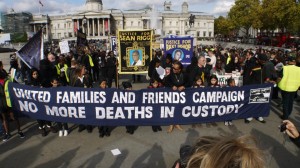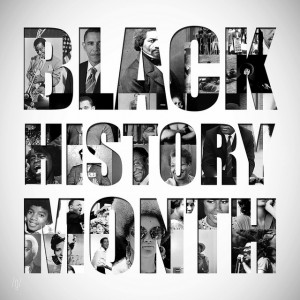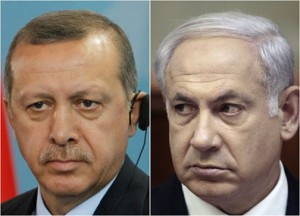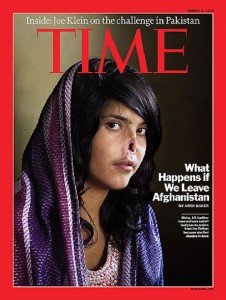Politics
New in Ceasefire, Politics - Tuesday, November 1, 2011 16:01 - 0 Comments
Analysis">Unveil and Conquer: Beyond the Melting Pot Analysis

In the second of his two-part essay on the relationship between feminism and imperialism, Sebastião Martins argues that Afghani women, far from being the much-vaunted beneficiaries of NATO's occupation of their country, are in fact its main victims.
New in Ceasefire, Politics - Saturday, October 29, 2011 18:34 - 9 Comments
Politics">‘Deaths in Custody’ March Attacked by Police Politics
 On Saturday, hundreds of campaigners and relatives gathered in Trafalgar Square to march against deaths in police custody, ending in a peaceful sit-in across the road from Downing Street. However, the police reacted violently, attacking two elderly women and detaining a number of protesters. Ceasefire associate editor Adam Elliott-Cooper reports.
On Saturday, hundreds of campaigners and relatives gathered in Trafalgar Square to march against deaths in police custody, ending in a peaceful sit-in across the road from Downing Street. However, the police reacted violently, attacking two elderly women and detaining a number of protesters. Ceasefire associate editor Adam Elliott-Cooper reports.
New in Ceasefire, North African Dispatches - Thursday, October 27, 2011 12:45 - 1 Comment
North African Dispatches">Tunisia: The Real Revolution Starts Now North African Dispatches
 This week, millions of Tunisians lined up at polling stations to vote in their country's first ever open, democratic elections. In his latest column, Kateb Salim considers the significance of the occasion and what lies ahead for the country and the region.
This week, millions of Tunisians lined up at polling stations to vote in their country's first ever open, democratic elections. In his latest column, Kateb Salim considers the significance of the occasion and what lies ahead for the country and the region.
New in Ceasefire, Politics - Monday, October 17, 2011 16:37 - 0 Comments
Politics">The End of Impunity? On the US ‘Nazi’ experiments in Guatemala Politics
 In 2010, documents were uncovered that proved a US governmental research programme had deliberately infected thousands of Guatemalans with STDs, leading to the deaths of hundreds. In a new essay, Ceasefire’s Sebastião Martins investigates the horrific background and details of the case, and argues the era of US impunity is over.
In 2010, documents were uncovered that proved a US governmental research programme had deliberately infected thousands of Guatemalans with STDs, leading to the deaths of hundreds. In a new essay, Ceasefire’s Sebastião Martins investigates the horrific background and details of the case, and argues the era of US impunity is over.
New in Ceasefire, Politics - Sunday, October 16, 2011 15:05 - 9 Comments
Analysis">Black History and the Conservative Roots of Race Analysis
 Every year for the past quarter century, Black History month in Britain manifests itself in our key institutions as "thirty-one days of PR for British colonialism and the Transatlantic Slave Trade". In an new essay, cultural critic Nichole Black revisits the BHM debate.
Every year for the past quarter century, Black History month in Britain manifests itself in our key institutions as "thirty-one days of PR for British colonialism and the Transatlantic Slave Trade". In an new essay, cultural critic Nichole Black revisits the BHM debate.
Ceasefire Bites, New in Ceasefire, Politics - Thursday, October 13, 2011 20:02 - 0 Comments
Blog">Moazzam Begg: how Canada closed its doors to me Blog
 Author and campaigner Moazzam Begg became the first Guantanamo prisoner to step onto North American soil as a free man. However, as he explains in a new article, the Canadian authorities had other ideas.
Author and campaigner Moazzam Begg became the first Guantanamo prisoner to step onto North American soil as a free man. However, as he explains in a new article, the Canadian authorities had other ideas.
New in Ceasefire, North African Dispatches - Wednesday, October 12, 2011 13:22 - 0 Comments
North African Dispatches">Tunisia: A democracy’s birthing pangs North African Dispatches
 In a fortnight, Tunisians will head to the polls for their country's first ever democratic elections. In his latest column, Kateb Salim reports on the hopes and dangers lying ahead.
In a fortnight, Tunisians will head to the polls for their country's first ever democratic elections. In his latest column, Kateb Salim reports on the hopes and dangers lying ahead.
New in Ceasefire, Politics - Tuesday, October 11, 2011 9:03 - 0 Comments
Special Report">Bahrain: British Protectorate, Close Ally Special Report
 Janet Salmon reviews the deep-running links between Britain and the Bahraini regime, and provides an update on the situation in the country, as the persecution of pro-democracy doctors and activists continues.
Janet Salmon reviews the deep-running links between Britain and the Bahraini regime, and provides an update on the situation in the country, as the persecution of pro-democracy doctors and activists continues.
Editor's Desk, New in Ceasefire, Politics - Sunday, October 9, 2011 10:34 - 2 Comments
Analysis">One More Disappointment at the United Nations: Richard Falk on the Palmer Report Analysis
 The findings of the UN's Palmer report, published last month, on Israel's attack on the Gaza Flotilla, have triggered an unprecedented fallout between the Turkish and Israeli governments. In an exclusive new essay, the UN's special rapporteur on the Palestinian territories, renowned academic and legal expert Richard Falk, gives his verdict on the report.
The findings of the UN's Palmer report, published last month, on Israel's attack on the Gaza Flotilla, have triggered an unprecedented fallout between the Turkish and Israeli governments. In an exclusive new essay, the UN's special rapporteur on the Palestinian territories, renowned academic and legal expert Richard Falk, gives his verdict on the report.
New in Ceasefire, Politics - Thursday, October 6, 2011 12:00 - 1 Comment
Analysis">Unveil and Conquer: war, occupation, and women’s rights Analysis
 Ceasefire's Sebastião Martins analyses the way in which the movement for women's rights in Afghanistan has been increasingly co-opted by Washington - as other colonial powers had done in the past - to justify a foreign occupation.
Ceasefire's Sebastião Martins analyses the way in which the movement for women's rights in Afghanistan has been increasingly co-opted by Washington - as other colonial powers had done in the past - to justify a foreign occupation.

